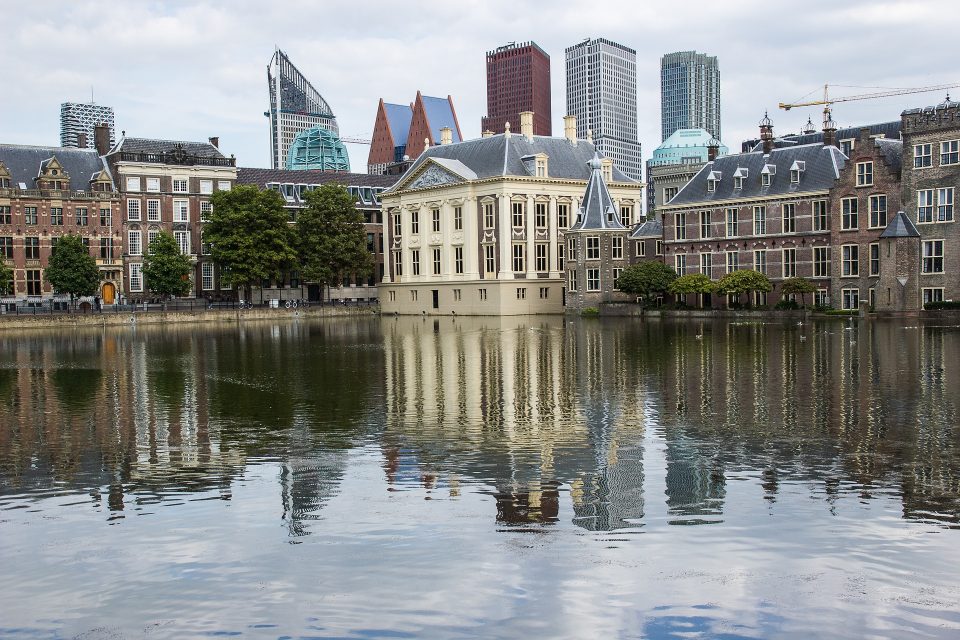By Marlise Simons
PARIS — The United Nations war crimes tribunal for Yugoslavia released a French journalist from its prison in The Hague on Tuesday amid a growing clamor for her freedom by Western news media and human rights activists from the Balkans.
The journalist, Florence Hartmann, a former correspondent for Le Monde who had also worked for the tribunal prosecutor, had spent five days in the prison, which is normally reserved for war crimes suspects and convicts.
Hartmann was unexpectedly arrested by U.N. security guards on Thursday outside the court gates while talking with victims from the Bosnian war. The groups had gathered to hear the verdict against Radovan Karadzic, the former Bosnian Serb leader.
Hartmann, 53, tried to resist arrest and was surrounded by Bosnian women trying to protect her. She was told that she had to serve a seven-day sentence because she had not paid a fine in a court judgment against her. She was convicted of contempt of court in 2009 for writing about how tribunal judges had issued confidential decisions ruling that parts of the records provided by Serbia could be used in closed sessions of the court but had to be kept out of the public eye.
It meant that Serbia could black out parts of its military archives and minutes of wartime meetings that could prove the extent of Serbia’s role in the Bosnian war in terms of financing, supplies and forces.
The Serbian government wanted the documents expurgated to keep them from damaging its case at the International Court of Justice, where Bosnia was suing Serbia for genocide and potentially enormous damages.
Hartmann, in publishing the confidential decisions, had argued that victims had a right to know about the confidential agreement made between tribunal judges and Serbia. She had learned about them from Serbian sources, she said.
Le Monde said her imprisonment was “scandalous” and called for her release.
At least five other journalists have been convicted by the Yugoslavia tribunal for contempt of court. They were sentenced to pay fines of 7,000 to 10,000 euros, about $7,800 to $11,175, and in one case three months’ imprisonment. The journalists — four from Croatia, one from Kosovo — were found guilty of publishing names of protected witnesses or of disclosing records from closed court sessions.
Hartmann’s case is different because she wrote about the judges themselves, disclosing legal reasoning and citing their names in two confidential decisions made by several judges.
In a telephone interview from The Hague after her release on Tuesday, Hartmann said what had angered the judges most was that she wrote that they had acted “unlawfully” and had therefore made their decisions confidential.
On Tuesday afternoon, the court freed Hartmann after her lawyer filed a motion for her release because she had served two-thirds of her sentence, as is customary at the tribunal.
“I’m happy, but I’m exhausted from all the emotions,” Hartmann said. “The world had turned upside down.”
She had covered the war in Yugoslavia for Le Monde and then became the spokeswoman for Carla del Ponte, then the chief prosecutor at the tribunal, for six years. After she left, she wrote three books about the wars, often highlighting the role of Serbia.
“There I was, now behind the walls where the war criminals were kept,” she said. Describing her conditions, she said she was detained in a segregated section and had no contact with other prisoners.
“Even though they knew there was no risk of suicide, I was under round-the-clock surveillance, which means you are checked every 30 minutes,” she said. “So the guards said it would be best to keep the lights on, so they would not have to come in but look through the door window.”
Asked why she went to the tribunal, knowing of the arrest warrant, she said she had not planned to enter but wanted to be nearby on the “historic day” of the verdict for Karadzic.
She said there had been no reason to fear arrest. France had already told the tribunal that it would not surrender her. Last April, while she was briefly working in The Hague, the tribunal sent the warrant to the Dutch authorities asking for her detention, but it was ignored.
“The Dutch knew where I was staying, but they did not try to arrest me,” she said.
(c) 2016 New York Times News Service


